Plan the play, play the plan: Mark of a good leader
 The great Napoleon Bonaparte, a remarkable warrior, was never known to be a humorous man. Yet one of his remarks revealed an inclination toward irony. He was once asked how he went along winning a battle. His reply was: “It is quite simple. One commits himself and sees what happens.”
The great Napoleon Bonaparte, a remarkable warrior, was never known to be a humorous man. Yet one of his remarks revealed an inclination toward irony. He was once asked how he went along winning a battle. His reply was: “It is quite simple. One commits himself and sees what happens.”
There are several assumptions contained in that phrase. One assumption is one commits himself and sees what happens next. Another has to do with having considered the idea, studied the terrain and the opposition, gathered the resources on hand and informed of attitudes, finally proceeded to instruct his men in what he intends to do and explain what he expects his men to do. In military parlance the latter is known as the Battle Plan.
A good leader does not engage his men into battle without a demonstrably sound battle plan for he knows that the final outcome of the battle will clearly divide between dreaming aspirations and concrete reality. The same, unfortunately, cannot be said of many of our leaders whose decisions and actions in office impact on the lives and well being of millions.
Plan the play, play the plan.
Author: Rene “RC” Catacutan Published 28 August 2011 Pasig City, PHILIPPINES
Images of some famous political and military leaders in history
Winston Churchill of England (1874-1965). A successful politician, statesman and Prime Minister, Churchill is best known for leading England to victory against Nazi Germany during the Second World War.
George Washington of the United States of America (1732-1799). Washington led the Continental Army to victory against the Kingdom of Great Britain in the American Revolutionary War and went on to become the first President of the United States.
Mohandas Gandhi, or Mahatma Gandhi, of India (1869-1948). Generally regarded as the Father of the Indian Nation, Gandhi was a politician and a leader who led his nation to freedom from the Kingdom of Great Britain. His philosophy of non violence has inspired many other great leaders throughout the world.
Napoleon Bonaparte, or Napoleon I, of France (1769-1821). A general in the army, Bonaparte rose to power after the French Revolution, extended the French Empire and is known for his brilliant military strategies and tactics.
Abraham Lincoln of the United States of America (1809-1865). The 16th President of the United States, Lincoln is often referred to as the “Great Emancipator” for leading the country to victory against the Confederate Army of the secessionist south in the American Civil War and for abolishing slavery in America.
Alexander the Great, or Alexander III, of ancient Macedonia (356 BC-323 BC). One of the most famous warriors and rulers in history who conquered nearly half of the known world of his day and considered as one of the greatest military geniuses of all times.
Queen Elizabeth I of England (1533-1603). Also known as the “Virgin Queen of England” because she never married, Elizabeth transformed England from what was an insignificant country when she came to power into a major political and military power in whole of Europe at the end of her reign.
Douglas MacArthur of the United States of America (1880-1964). A US “General of the Army” and a brilliant military strategist, MacArthur pllayed an important role in the Pacific theater of war during the Second World War and the eventual defeat and surrender of Imperial Japan. His brilliant landing of American and U.N. forces on Inchon Bay in South Korea halted the invasion of South Korea by communist forces from North Korea and China.
Nelson Mandela of South Africa (1918- ). The first democratically elected President of South Africa, Mandela is best known for his struggle and eventual triumph over racism and the Apartheid Regime in his country.
Julius Caesar of ancient Rome (100 BC-44 BC), a Roman politician and general who played an important role in extending the Roman Empire, making it the most powerful empire of his time.
John F. Kennedy of the United States of America (1917-1963). The 35th President of the United States, Kennedy was the first Roman Catholic and the youngest (43 years old) to be elected US president and the first US president to have won a Pulitzer Prize. His effective handling of the Cuban defense crisis, American civil rights and Vietnam war made him the most popular and influential US president in modern history.
Hannibal Barca of Carthage, now Tunisia (247 BC-183 BC). Best known as the “Father of Military Strategy” who took elephants over the Alps, Hannibal was a Carthagenian military commander who took on the mighty Roman Empire and almost conquered Rome. He is generally considered to be one of the greatest military commanders of all time.
Franklin D. Roosevelt of the United States of America (1882-1945). The 32nd President of the United States and the only US president to have served more than two terms in office, Roosevelt is best known for his New Deal economic programs and for leading the Allied Powers to victory against Nazi Germany during the Second World War.
Sun Tzu of China (544 BC?-496 BC?). Best known as the author of the book “The Art of War”, Sun was an ancient Chinese military general, strategist and philosopher. The book is not only popular among modern military theorists but among political leaders and business managers as well because it addresses broad strategies touching upon public administration and planning, diplomacy and theories of battle.
Corazon Aquino of the Philippines (1933-2009). The 11th President of the Philippines, Aquino led the bloodless 1986 People Power Revolution that toppled the dictatorship of Ferdinand Marcos and restored democracy in the Philippines.
Frederick the Great of Prussia, or Frederick II of the Hohenzollern Dynasty (1712-1786). King of Prussia from 1740-1786. Considered to be one of the “enlightened monarchs” (also referred to as “enlightened despots”), Frederick expanded Prussian territories and laid the foundation for the eventual unification of fragmented German princely states, which enabled Germany to emerge as a major world power at the start of the twentieth century.
David Ben-Gurion of Israel (1886-1973). Best known as Prime Minister of Israel (1949-53 and 1955-63) and a zealous Zionist, Ben-Gurion led the strugggle for and the eventual establishment of an independent State of Israel in 1948.
Vo Nguyen Giap of Vietnam (1911- ). A retired commanding general in the Vietnam People’s Army, Giap led his ragtag army of peasants and workers to victories in two wars: the First Indochina War (1946-1954), which resulted in the defeat and expulsion of the French colonial forces; and the Vietnam War (1960-1975), which resulted in the withdrawal of American forces from South Vietnam and the unification of North and South Vietnam.
Lee Kuan Yew of Singapore (1923- ). The first Prime Minister of modern Singapore, Lee led his nation to independence, governed for three decades and transformed a small underdeveloped colonial outpost with no abundant natural resources into a financial and industrial powerhouse.
Simon Bolivar of Venezuela (1783-1830). Considered to be one of South America’s greatest generals, Bolivar played a key role in Latin America’s successful struggle for independence from the Spanish Empire. He led Bolivia, Colombia, Peru, Ecuador, Panama and Venezuela to independence.
Martin Luther King, Jr. of the United States of America (1929-1968). Best remembered for his “I have a dream” speech in which he called for racial equality, King struggled most of his lifetime for an end to racial discrimination against African Americans, the effect of which resonates even today.
Peter I the Great, or Pyotr Alexeyevich Romanov, of Russia (1682-1725). Peter was Tsar of Russia from 1682-1725. He carried out a policy of modernization and expansion by conquest that transformed Russia into a major European power.
Ho Chi Minh of Vietnam (1890-1969). Former Prime Minister and President of the former North Vietnam, Ho is best known for leading the liberation of his country and people from the occupying colonial forces of Japan and France (1942-1954), and for forcing the withdrawal of American forces from the former South Vietnam that led to the unification of North and South Vietnam in 1975.
Saladin (Salah al-Din Yusuf ibn Ayyub) of medieval Mesopotamia, now Iraq (1130-1193). The first Sultan of Egypt and Syria and founder of the Ayyubid Dynasty, Saladin is revered in the Muslim world as a hero of Islam who united Arab forces and recaptured the holy city of Jerusalem from Christian Crusaders in the 12th century AD.
Mikhail Gorbachev of the former Union of Soviet Socialist Republics (1931- ). A former President of the USSR, Gorvachev served as the last Secretary General of the Communist Party of the Soviet Union and is best known for his Perestroika (reconstruction) and Glasnost (transparency) programs of government that paved the way for the democratization of communist Russia and Eastern Europe.
Otto von Bismarck of Germany (1815-1898). A Prussian statesman and a dominant figure in world affairs of his day, Bismarck oversaw the unification of Germany from fractious Germanic states. His “Realpolitik” diplomacy and powerful rule gained him the “Iron Chancellor” monicker.
Ronald Reagan of the United States of America (1911-2004). The 40th President of the United States and a former Hollywood actor, Reagan is best known for his so-called “Reaganomics” economic policies and programs of government and for contributing to the end of the Cold War.
Emperor Meiji (the former Prince Mutsuhito) of Japan (1852-1912). The 122nd Emperor of Japan by tradition, Meiji presided over the dramatic socio-political transformation and modernization of Japan in the late 19th century from a feudal shogunate into a world power.
Margaret Thatcher of England (1925- ). The first woman Prime Minister of England, Thatcher is best known for revitalizing Britain’s economy and for leading her country to victory against Argentina in the Falklands War.
Heinz Guderian of Germany (1888-1954). A German commanding general in World War II, Guderian is the father of the German Blitzkrieg, a concept of lightning warfare involving the rapid deployment and movement of mobile and motorized armored divisions into enemy territory, supported by heavy air bombardment.
Lech Walesa of Poland (1943- ). A Polish politician, trade union organizer and human rights activist, Walesa co-founded Solidarity, the Soviet bloc’s first independent trade union, won the Nobel Peace Prize in 1983, and served as President of Poland between 1990 and 95. A charismatic leader, Walesa is best known for his valiant effort to free his country from Communist rule.
Konrad Adenauer of Germany (1876-1967). A German statesman and the first Chancellor of the Federal Republic of Germany, Adenauer led his nation from the ruins of World War II to one of the most prosperous nations in Europe. He brought Germany democracy, political stability, respect and prosperity.
Horatio Nelson of England (1758-1805). Considered to be the greatest naval hero in the history of Great Britain, Nelson was a British admiral who won fame for his participation in the Napoleonic Wars, most notably in the Battle of Trafalgar where he lost his life. He was noted for his inspirational leadership and brilliant battle strategies and tactics, which resulted in a number of decisive naval victories for the British Royal Navy.
Sun Yat Sen of China (1866-1925). A Han Chinese doctor, revolutionary and political leader, Sun is often referred to as the “Father of modern China”. Sun played an instrumental role in the eventual collapse of the Qing Dynasty in 1911 and served as the first provisional president when the Republic of China was founded in 1912. He was a unifying figure in the post-Imperial China and, to this day, remains revered in both Mainland China and in Taiwan.
Erwin Rommel of Germany (1891-1944). A German Field Marshall of World War II and popularly known as the “Desert Fox”, Rommel is considered to be a brilliant commander of armored warfare.
Indira Gandhi of India (1917-1984). The first woman Prime Minister of India, Gandhi is considered by many political thinkers as the most controversial Premier of her nation due to her heavy handed handling of the political and social unrest in India during her premiership.
Mustafa Kemal Ataturk of Turkey (1881-1938). Ataturk was an Ottoman and Turkish army officer, revolutionary statesman, writer and the first President of Turkey. He is considered to be the founder of modern Turkey.
Golda Meir of Israel (1898-1978). A teacher who became a politician, Meir is best known as the first female (and the fourth) Prime Minister of the State of Israel. Strongly-willled and fiercely protective of Israel, she became an international symbol of Israeli resolve.
Chiang Kai-shek of Taiwan (1887-1975). A soldier and a statesman, Chiang was head of the Nationalist government in China from 1928 to 1949 and head of the Nationalist goverment in exile on Taiwan. He is credited for the economic prosperity of Taiwan.
Pierre Trudeau of Canada (1919-2000). Generally regarded as the most charismatic Prime Minister of Canada in Canada’s history (who slid down banisters, dated movie stars and wore a red rose in his lapel), Trudeau helped shape Canada with his vision of a unified, bilingual, multicultural “just society “.



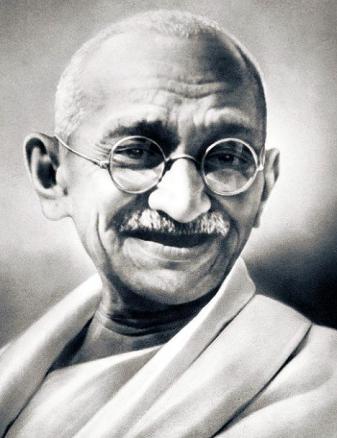

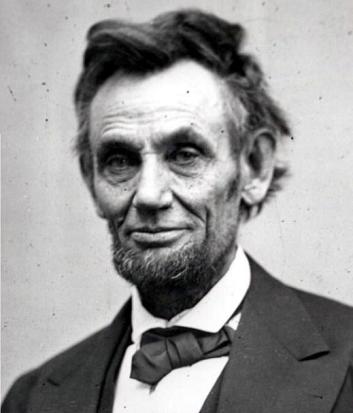
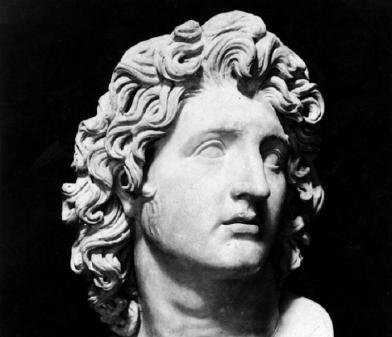
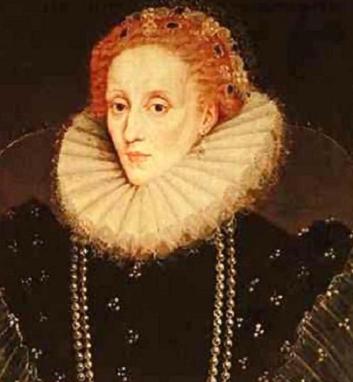


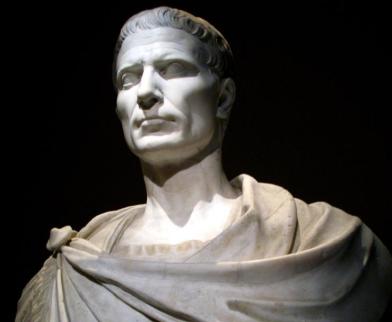



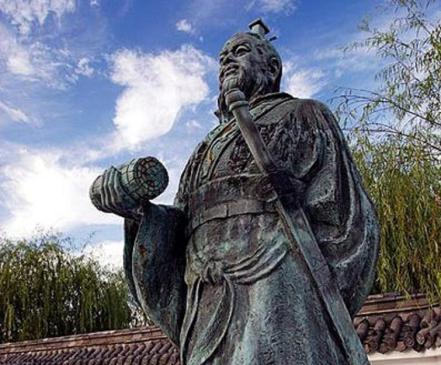



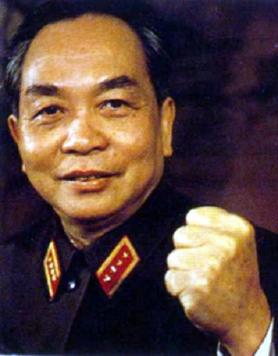








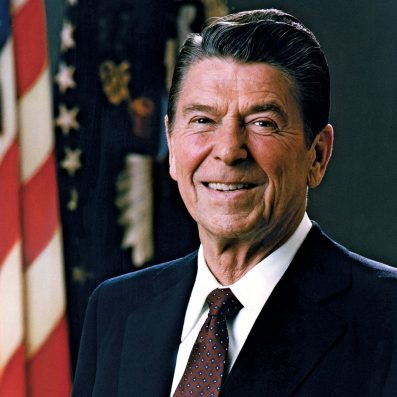






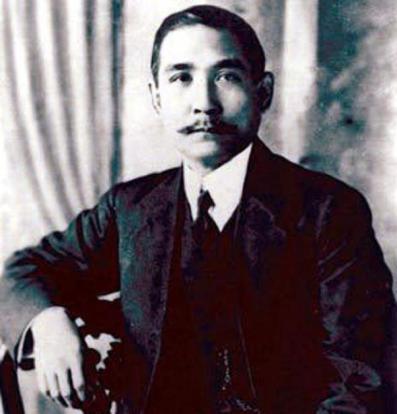



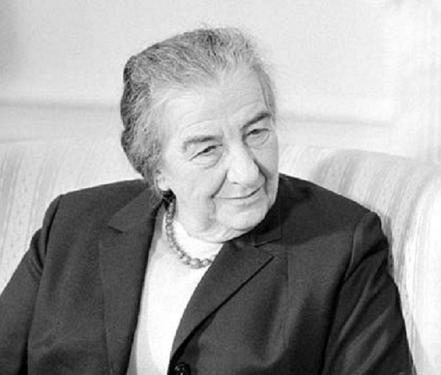


2 comments
Comments feed for this article
September 22, 2012 at 12:17 PM
rajesh
super………………………
November 21, 2012 at 1:27 AM
otto barcelona
Tremendous issues here. I’m very glad to peer your article. Thank you a lot and I am looking forward to contact you. Will you kindly drop me a mail?